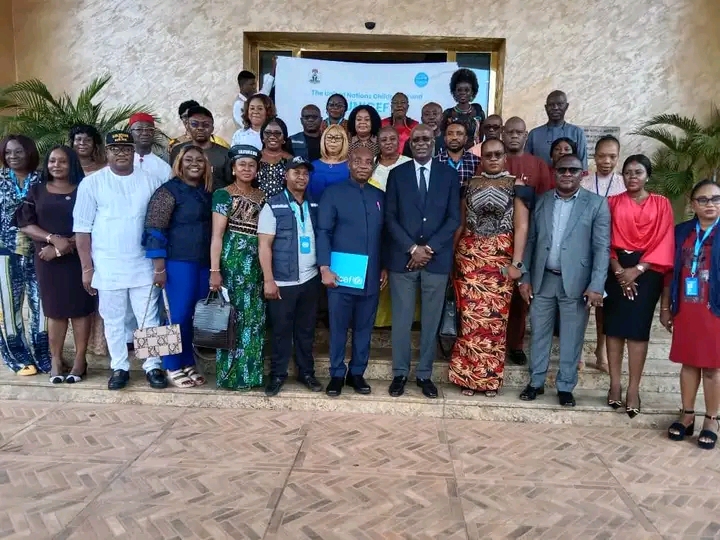The Anambra State Commissioner for Economic Planning and Budgets, Mrs. Chiamaka Nnake, has emphasized that the Governor Chukwuma Soludo administration adheres strictly to stakeholder opinions in budgeting and implementation processes.
Commissioner Nnake made this assertion at Nibo in the Awka South Council Area during a United Nations Children’s Fund (UNICEF) program titled “South East Zonal Policy Dialogue on Social Budgeting for Child-Sensitive Sectors.”
The event drew state commissioners and permanent secretaries from ministries impacting child development across the South East Zone, along with various policy and sectoral stakeholders, to deliberate on securing a brighter and healthier future for Nigeria’s children.
The dialogue aims to engage states collaboratively to chart a path toward adequate and sustainable financing, especially for social sectors.
Addressing the attendees, Commissioner Nnake highlighted that the Anambra State government, both before and after budgeting, has consistently implemented child-centered policies, including free antenatal services, mother and child healthcare, and free education from nursery to Junior Secondary School Class Three.
Nnake also pointed out that through the Ministries of Education and Women and Children Affairs, the state government has significantly impacted the lives of many children, particularly the vulnerable, ensuring their sustenance and a brighter future.
The Resident and Humanitarian Coordinator of the United Nations in Nigeria, Mohamed Fall, emphasized the UN’s commitment to supporting and accelerating sustainable development goals to address challenges facing children and ensure they have a better future. Fall challenged participants to develop solutions incorporating private sectors, faith-based organizations, community leaders, women’s organizations, and others to achieve sustainable goals.
UNICEF Chief of Field Office in Enugu, Dr. Olusoji Akinleye, noted that the dialogue, conceptualized under the UNICEF framework for public financing for children, is crucial and timely as states begin formulating their 2025 budgets. Dr. Akinleye stated that the dialogue would provide states with the opportunity to exchange ideas, challenges, and best practices related to budget formation and implementation, highlighting key bottlenecks and possible policy remedies.
Social Policy Officer Mr. Victor Chima outlined the dialogue’s objectives, emphasizing the importance of adequately budgeting for social services through engagement with commissioners and permanent secretaries. This engagement includes budget consultative forums where all components gather to discuss financial management and reach a common understanding for the next year’s budget.
Dr. Ijeoma Onuoha-Ogwe, Communication Officer at UNICEF Enugu Field Office, identified four linked pillars of social policy: child officer, social protection, public finance management, and local governments.




